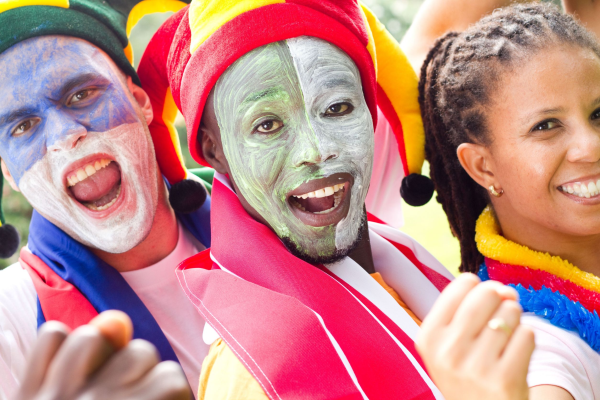 As always, large multinational public events generate heightened concern for personal security. The 2010 World Cup being held in Rustenburg, South Africa is no exception. The FIFA approved comprehensive security plan is broken into seven phases. The first phase began in 2004 when South Africa was selected to host this year's World Cup Tournament. The plan includes 41,000 Police Officers and $74.5 Million USD in hi-tech equipment. All the planning in the world however, can't insure the month-long event will go off without a hitch.
As always, large multinational public events generate heightened concern for personal security. The 2010 World Cup being held in Rustenburg, South Africa is no exception. The FIFA approved comprehensive security plan is broken into seven phases. The first phase began in 2004 when South Africa was selected to host this year's World Cup Tournament. The plan includes 41,000 Police Officers and $74.5 Million USD in hi-tech equipment. All the planning in the world however, can't insure the month-long event will go off without a hitch.
The committee’s overwhelming focus has been on protecting the attendees against the potential for violent crime, however, even with all the preparations security does not appear to be very tight. Just yesterday, according to the Huffington Post, attendees witnessed several people setting off the metal detectors on their way into the stadium and then being waved in by smiling security guards without being asked to do so much as empty their pockets! For attendees with credentials, people with advanced tickets that have passed 'pre-screening' checks, bag checks are often cursory or are not done at all. Monday the stadium stewards walked out in protest of low pay or their work, leaving the stadium more-or-less unguarded during the Italy-Paraguay match.
This latent security should leave attendees of the World Cup concerned, however, by following certain guidelines you can increase your chances of both enjoying the World Cup and staying safe.
- Be mindful of your surroundings. As everyone knows, beer is a big part of soccer, but that doesn't mean that your entire group should go 'wild' and every game. Sure you don't have to drive, but South Africa can be dangerous and with so many tourists in town for the World Cup, you can bet that prospective criminals will be on the look out for anyone who seems to be enjoying themselves too much. So drink moderately at the games or, if that doesn't work, elect a rotating DN (designated navigator) to keep you on track to your hotel. Regardless of whether you've been drinking, always keep an eye on where you are, where you're going, and who's around you.
- Try to 'blend in' with the crowd. When you're walking around, either before or after a match, try to blend in with those around you. Be mindful of your personal space, keep any valuables in inside pockets, but try not to call too much attention to yourself by being overly loud, pointing, or by straying out of tourist areas.
- Stay in groups and on the beaten path. Don't go anywhere alone. At the very least bring a buddy, but a group of about 4 or 5 people is probably the safest bet. If your guide book or hotel tells you to stay out of certain areas, stay out of them. If security guards or police are ushering you away from a particular place, obey their instructions. Exercise common sense and good judgement while walking around the city.
- Don't flaunt your wealth. American's are a prime target to a potential criminal because of their suspected wealth. While you can't change being American, you can change how you are precieved as a victim. So keep you money out of sight, and don't spend wildly while you're out in the city. Research tipping culture before you go to a pub or restaurant so you know how much is normal. Leaving too large of a tip can mark you as both inexperienced and wealthy. Also, as hard as it might be to resist, don't give too much money to people on the street - it can attract un-wanted attention.
- If your wallet is stolen, report it immediately to your bank. If you notice that your credit cards or passport are missing report them immediately to the local consulate or your home bank. The sooner you report them the less likely you are to have your identity stolen or to be a victim of monetary theft. Before you go (if you are going for the later part of the month) consider investing in an Identity Protection Service, that way, even if your credit and personal information is stolen you will not be at risk for identity theft or fraud.
- Maintain regular email contact with those back home. This is both for your safety and for the peace of mind of your family and friends back home. Arange to send an email to them on a regular basis - perhaps every 2-3 days. Agree that if you don't check in with in 24 hours of the agreed day, your freind or family member will report you missing to the authorities.
It's more than likely that you'll be safe for the duration of your stay in South Africa, however, the above precautions will give you and those at home some peace-of-mind while you're away. Just remember to respect the cultural and civil environment in which you are now a visitor!
Bookmark/Search this post with:



 Delicious
Delicious Digg
Digg StumbleUpon
StumbleUpon Propeller
Propeller Reddit
Reddit Magnoliacom
Magnoliacom Furl
Furl Facebook
Facebook Google
Google Yahoo
Yahoo Technorati
Technorati